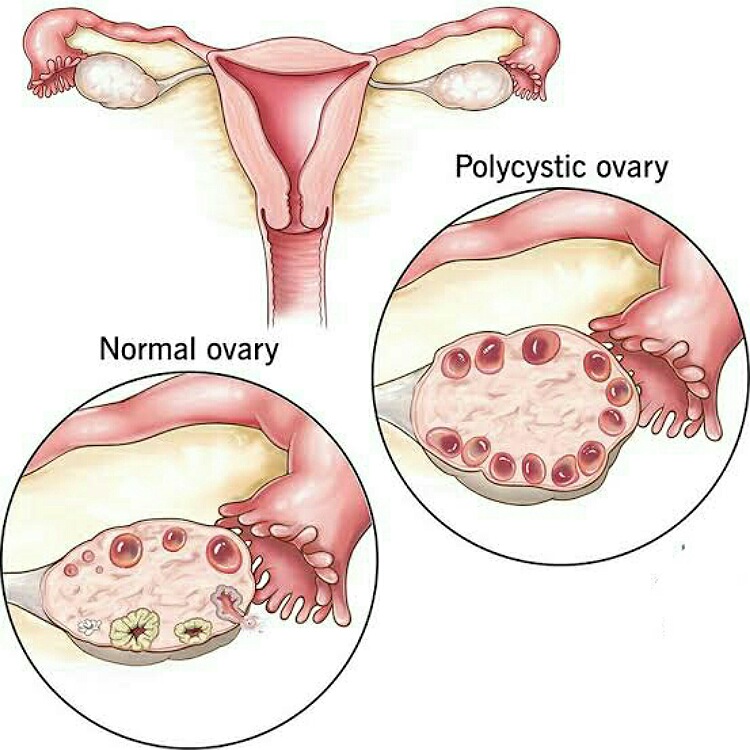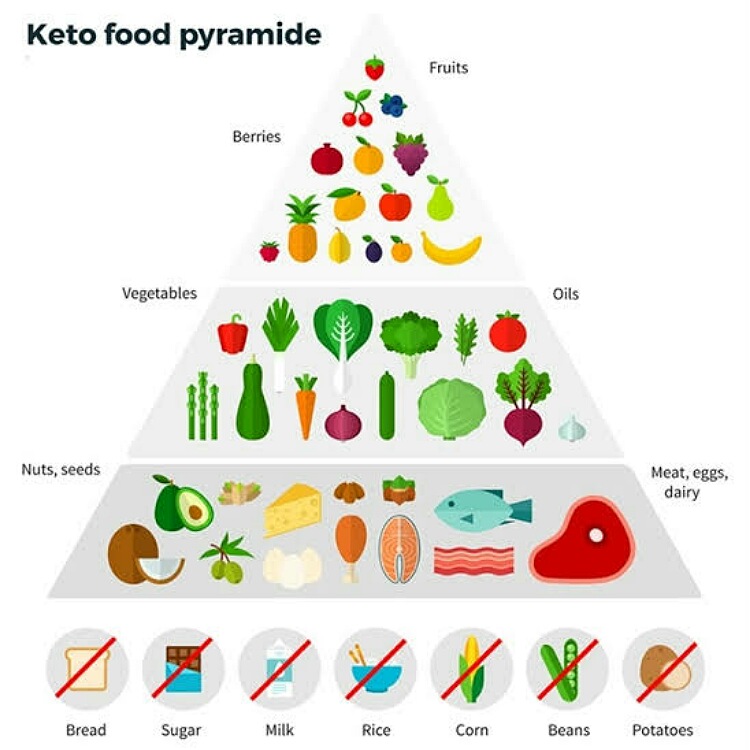Polycystic ovarian syndrome or PCOS affects a significant number of women worldwide. It leads to infertility. Various remedies have been tried for this condition with variable outcomes. A new study explores the role of ketogenic diet in this condition. Does it help?
Polycystic ovarian syndrome
Polycystic ovarian syndrome or PCOS is an endocrine medical condition in which ovaries develop cysts of different sizes. Along with this, there is an hormonal imbalance with elevated androgen levels and oligo-ovulating ovaries. Infertility is present in 40% of these affected women.
This condition is associated with other metabolic conditions like type 2 diabetes mellitus, impaired glucose tolerance, hyperinsulinism, insulin resistance, fatty liver, and high blood pressure. These women also suffer from overweight and obesity.

Several diet types have been tried in this condition. Low refined carbs and low amounts of saturated fats might probably assist in this condition. Scientists have looked at the role of ketogenic Mediterranean diet with phytoextracts (KEMEPHY), low glycemic index diet and low saturated fats diet in controlling this condition. But the success rate has not been remarkable.
Ketogenic diet in PCOS
The diet that has attracted attention for this case has been the very-low-calorie ketogenic diet (VLCKD). In this diet, fats provide 90% of the calories while carbs and protein provides the remaining 10% of the calories in the daily diet. And this diet goes in three stages. These are active stage, re-education and the maintenance stages.
This diet has shown some promise in PCOS. It reduces weight loss, but maintains the lean body mass. And it preserves normal glucose metabolism throughout this process.

The new study tried to review all the evidence in the role of this diet in management of PCOS. And the study showed that in PCOS, there is problem of carbs metabolism and hence in the composition of the body. These along with obesity causes an abnormal alteration in the glucose metabolism and leads to dyslipidemia. Amino acid metabolism is also affected. There is body inflammation of the low grade type along with insulin resistance and the blood dysregulation of glucose and fats.
Read here: Food tips to reduce excessive back fat!
The findings
The review states that weight loss alone cannot correct the condition. There should be low carbs but high healthy fats in the diet of these patients. On a ketogenic diet, there is activated adenosine monophosphate-activated protein kinase (AMPK) in the body. Moreover, there is silent mating type information regulation 2 homolog 1 (SIRT1). These improve insulin sensitivity and glucose metabolism.

By helping lose weight, the diet also increases insulin sensitivity and glucose uptake. Moreover, it reduces androgen levels and normalizes the ratio of the luteinizing hormone (LH) to follicle-stimulating hormone (FSH). The VLCKD similarly helps in weight loss and improving insulin sensitivity. The study published in the Current Nutrition Reports writes:
“It is evident that the nutritional approach in treating PCOS is essential, whether in controlling body weight, IR, or treating associated comorbidities through different strategies. It seems essential to continue carrying out studies that generate evidence on which dietary pattern is most indicated for managing this condition.”
